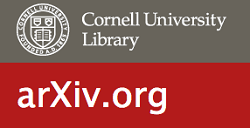A research group including a researcher from Koya University, Dr. Halgurd Sarhang Maghdid, published a study entitled "A Novel AI-enabled Framework to Diagnose Coronavirus COVID 19 using Smartphone Embedded Sensors: Design Study" in the arXiv archive. The research group proposed a new framework to detect coronavirus disease COVID-19 using onboard smartphone sensors. The study authors are: Halgurd S. Maghdid, Kayhan Zrar Ghafoor, Ali Safaa Sadiq, Kevin Curran, Khaled Rabie
About the arXiv archive:
arXiv® is a free distribution service and an open archive for scholarly articles in the fields of physics, mathematics, computer science, quantitative biology, quantitative finance, statistics, electrical engineering and systems science, and economics. arXiv is a collaboratively funded, community-supported resource founded by Paul Ginsparg in 1991 and maintained and operated by Cornell University.
About the study:
Title: A Novel AI-enabled Framework to Diagnose Coronavirus COVID 19 using Smartphone Embedded Sensors: Design Study
Deposit date: Mon, 16 Mar 2020 20:38:13 UTC
Abstract:
Coronaviruses are a famous family of viruses that causes illness in human or animals. The new type of corona virus COVID-19 disease was firstly discovered in Wuhan-China. However, recently, the virus has been widely spread in most of the world countries and is reported as a pandemic. Further, nowadays, all the world countries are striving to control the coronavirus disease COVID-19. There are many mechanisms to detect the coronavirus disease COVID-19 including clinical analysis of chest CT scan images and blood test results. The confirmed COVID-19 patient manifests as fever, tiredness, and dry cough. Particularly, several techniques can be used to detect the initial results of the virus such as medical detection Kits. However, such devices are incurring huge cost and it takes time to install them and use. Therefore, in this paper, a new framework is proposed to detect coronavirus disease COVID-19 using onboard smartphone sensors. The proposal provides a low-cost solution, since most of the radiologists have already held smartphones for different daily-purposes. People can use the framework on their smartphones for the virus detection purpose. Nowadays, smartphones are powerful with existing computation-rich processors, memory space, and large number of sensors including cameras, microphone, temperature sensor, inertial sensors, proximity, colour-sensor, humidity-sensor, and wireless chipsets/sensors. The designed Artificial Intelligence (AI) enabled framework reads the smartphone sensors signal measurements to predict the grade of severity of the pneumonia as well as predicting the result of the disease
Authors:
Halgurd S. Maghdid, Kayhan Zrar Ghafoor, Ali Safaa Sadiq, Kevin Curran, Khaled Rabie
----------
Koya University (KOU) is located in the city of Koya (Koy Sanjaq) which is 1.0 hr drive to the East of the Kurdistan Region capital Erbil (Arbil, Hewlér) in Kurdistan Region of F.R. Iraq. It is on the foothills of beautiful high mountain. Its campus has been carefully laid out to embrace the beautiful mountainous nature. . There are 4 Faculties and 2 Schools in KOU; Faculty of Engineering (FENG), Faculty of Science and Health (FSCH), Faculty of Education (FEDU), Faculty of Humanities and Social Silences (FHSS), Shcool of Physical Education (SPHE) and School of Medicine (SMED). Also, there are two research centers; Genome Center and Malai Gawra Center. Moreover, at KOU there is an English Language Center (BELC) at KOU has been opened with the sponsorship of IREX and American embassy in Baghdad as well as with the support of Spring International Language Center of The University of Arkansas. KOU has two Scientific Journals; ARO-The Scientific Journal of Koya University, which is indexed by Clarivate Analytics (ESCI), and Koya University Journal of Humanities and Social Sciences (KUJHSS). KOU is a proactive member of Erasmus/ Marhaba Project and Erasmus+. KOU signed many Memorandum of Understandings (MoU) with many International Universities, e.g., The University of Arkansas (June 2015). The Lulea University in Sweden (April 2014), The University of Nottingham in the UK, The University of Buckingham in the UK (Oct 2008), Belkin University in Turkey (Sep 2009) and The University of Greenwich in the UK.

